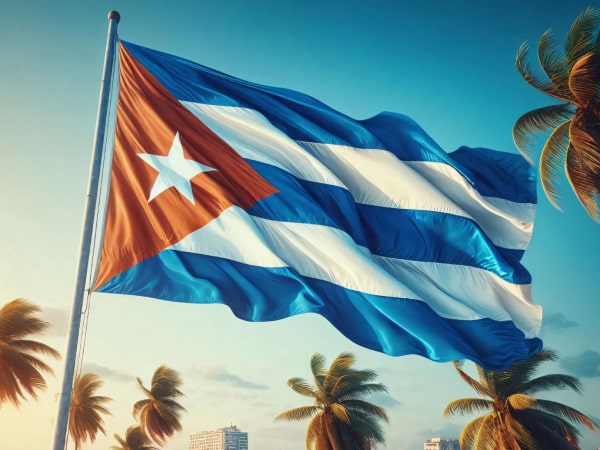- Overview of Gaming License in Costa Rica
- Understanding the Importance of a Gaming License
- Key Benefits of Obtaining a Gaming License
- Requirements for Obtaining a Gaming
- Documentation Needed for License Application
- Financial Obligations and Fees
- Process of Acquiring a Gaming License
- Step-by-Step Guide to Applying for a Gaming License
- Review Process and Expected Timeline
- Potential Challenges and How to Overcome Them
- Compliance and Regulatory Considerations
- Ensuring Compliance with Gaming Regulations
- Responsibilities of License Holders
- Consequences of Non-Compliance
Overview of Gaming License in Costa Rica
Costa Rica does not officially regulate the gambling industry, but gambling is not prohibited in Costa Rica. Any company that engages in such activities is a legal entity under the definition of “online gambling”. This status allows companies to operate outside the jurisdiction without having to comply with regulatory requirements. En outre, it is worth noting that every operator that plans to place its servers in Costa Rica has the right to obtain a license for data processing.
Understanding the Importance of a Gaming License
The importance of a gaming license in Costa Rica is as follows:
- the presence of a gambling license in Costa Rica legitimizes the activity, ensuring its recognition as a legal entity in the country;
- having a permit such as a gambling license gives players confidence that the operator is legitimate and meets certain standards set by the Costa Rican authorities;
- licensed operators are accepted both on the local and international markets with more confidence;
- a company with a license when opening a bank account in EMI or in a bank has a positive effect on the process of opening an account;
- a gaming license in Costa Rica can serve as a stepping stone for operators seeking to work abroad;
- Licensed operators contribute to the economy of Costa Rica by paying taxes and fees, as well as by providing employment to the population, having a positive impact on the economy.

Key Benefits of Obtaining a Gaming License
Obtaining gambling licenses in Costa Rica offers a number of advantages for online gaming operators, namely:
- legitimacy: the presence of a license in the company indicates that the operator’s activities are legal in Costa Rica;
- optimal licensing fees: the cost of obtaining a gaming license in Costa Rica is usually lower than in many other jurisdictions;
- minimization of taxation: Costa Rica does not impose special taxes on gambling for licensed operators, which results in some savings in operating costs for the business owner;
- cooperation with banking (financial institutions): it is easier for licensed operators to open accounts in banks, EMIs, as well as carry out financial transactions;
- establishment of international cooperation: licensed operators can conclude cooperation agreements with international software suppliers and other enterprises, looking for optimal, more economically profitable options for cooperation with foreign partners;
- increased level of security: licensed operators are usually required to implement robust security measures to protect both player data and the integrity of gaming platforms as a whole.
The advantages listed above are not the final list. These are just the key “bonuses” specific to online gaming operator owners seeking to establish and grow their business in Costa Rica.
Requirements for Obtaining a Gaming
Obtaining a gambling license in Costa Rica, as in any other jurisdiction, involves compliance with certain requirements. Such necessary requirements that precede the receipt of a gambling license in Costa Rica include:
- registration of the company in the National Register of Costa Rica. When registering a legal entity, the applicant must clearly state that the primary purpose of the company is to provide online gambling services outside of Costa Rica;
- presence of a local director who is a resident of Costa Rica. This person will be the legal representative of the company.
- presence of a physical office in Costa Rica. This office will be the legal address of the future company;
- hiring local employees to work in the office in Costa Rica. Local labor laws and rules for employees should be observed during employment. Registration of employees in the Caja Costarricense del Seguro Social (CCSS);
- development of a detailed business plan describing gaming operations, target market, projected revenues and compliance measures;
Server Hosting: Make sure your online gaming servers are hosted in Costa Rica. This is an important requirement for obtaining a data processing license;
- development of documentation (internal policies and rules) that will demonstrate the compliance of the operations of the legal entity that will receive the gaming license with anti-money laundering (AML) regulations and know your customers (KYC) requirements;
- arranging hosting of the host server and all related data in Costa Rica;
- timely payment for obtaining a license for data processing after successful company registration and obtaining a license, as well as payment for the annual renewal of such a license in accordance with the requirements;
- continuous reporting to the Costa Rican authorities in accordance with the terms of the license, as well as demonstration to the regulatory authorities of Costa Rica during the verification of the legal entity’s compliance with the terms of the license;
Compliance with the above requirements will allow operators of gaming licenses to use the obtained license efficiently and effectively, as well as to make a profit from their activities.
Documentation Needed for License Application
When applying for a gaming license in Costa Rica, it is necessary to prepare a certain set of documents, which will include:
- corporate documents that confirm the existence of the company in Costa Rica;
- lease agreement or confirmation of ownership of the physical office space in Costa Rica where the legal entity – the future owner of the license – will be located.
- server hosting agreement: documentation confirming that the online game servers will be hosted in Costa Rica along with agreements with data centers or hosting providers.
- documents certifying the identity of directors and shareholders along with proof of residence: copies of valid passports or national ID cards of all directors and significant shareholders, utility bill or lease agreement, etc.;
- Criminal record certificates for directors and major shareholders to ensure that they do not have a criminal record.
- a detailed business plan describing the nature of gaming operations, target market, projected revenues, marketing strategies and compliance measures;
- reference letters from the bank confirming the financial stability and good reputation of the shareholders of the legal entity.
- prepare copies of employment contracts for local employees working in the Costa Rica office, including job descriptions and qualifications of such employees;
- developed company policies and procedures to ensure compliance with anti-money laundering (AML) and KYC regulations, describing internal controls and measures to ensure fair play and secure transactions.
- provide receipts confirming the payment of the necessary application and license fees for issuing a license.

Financial Obligations and Fees
Obtaining a license to process data for online games in Costa Rica and its subsequent renewal requires the license holder to comply with certain financial obligations and pay certain fees that must be taken into account during the Costa Rica license process. Such financial obligations include payment of the following payments:
- initial fee for applying for a data processing license. This fee varies from time to time. This is usually around $5,000 to $10,000;
- additional costs from the regulator for processing an application for obtaining a gambling license;
- fee for company registration in Costa Rica. This fee includes legal fees, registration fees and notary fees. The total cost can range from $1,000 to $3,000;
- company maintenance fee: an annual fee for keeping the corporation in good standing, including the filing of annual reports and the payment of any related administrative fees. This payment can range from $1,000 to $2,000 per year;
- payment of services for the appointment of a local director or resident agent. Costs are usually between $1,000 and $2,000 per year;
- operating expenses related to renting office space or owning office space in Costa Rica. It depends on location and size, but can range from $500 to $2,000 per month;
- payment for hosting game servers in Costa Rica. Monthly expenses can range from $1,000 to $5,000 depending on the scale of the business;
- employment costs, which include wages for local employees, depending on the position, as well as vacation pay, health insurance, etc.. A typical monthly salary can range from $1,500 to $3,000 per employee, excluding the above benefits;
- payment of corporate income tax will fluctuate from 10% to 30% depending on the company’s income. En outre, tax may be levied on dividends, interest or royalties paid abroad. Rates may vary depending on tax treaties.
- annual fee for renewing the data processing license. This fee can vary but is usually between $5,000 and $10,000.
A gambling license in Costa Rica requires significant expenses. Cependant, compared to other jurisdictions, the benefits of gaming license in Costa Rica are precisely that the costs of obtaining and maintaining a license for data processing for online games are much lower.
Process of Acquiring a Gaming License
Obtaining a gambling license in Costa Rica has its own peculiarity. The reason: Costa Rica does not have a regulator as a special body that sets the requirements and conditions for obtaining a gambling license. In Costa Rica, obtaining a gambling license involves: creating a corporation and obtaining a data processing license. This process includes the following:
- registration of the company in the National Register of Costa Rica (Registro Nacional) within the structure chosen by the applicant together with all necessary registration documents;
- obtaining a corporate identification number of a legal entity (Cédula Jurídica) after company registration;
- opening a corporate bank account in Costa Rica for use in future financial transactions related to the gaming business;
- submitting an application for a data processing license (Licencia de Procesamiento de Datos) from the government of Costa Rica together with mandatory documents (passports of directors, shareholders, proof of residence, company business plan, etc.);
- organization of a local office in Costa Rica, which will serve as a place for receiving official company correspondence.
- creation of an online gaming platform within the territory of Costa Rica in accordance with the requirements of standards and norms with mandatory compliance with security measures;
- timely submission of annual reports and tax returns in accordance with the legislation of Costa Rica;
- payment of a fee for a license for data processing in the prescribed manner and terms.
Costa Rica gaming license requirements are fairly structured and straightforward. Analysis of all the requirements for starting a company and obtaining a license will allow you to become the owner of a gambling license in Costa Rica and start your activity in the shortest possible time.
Step-by-Step Guide to Applying for a Gaming License
If you have definitely decided to apply for a gaming license in Costa Rica, you must follow a certain algorithm for the licensing process to be successful, namely:
Step 1. before starting all the necessary registration actions related to the Costa Rica license process, you should consult with a specialist lawyer. The FINTECH HARBOR CONSULTING team can be such a reliable legal advisor.
Step 2: complete all the necessary steps for company registration:
– choose a unique name for the future legal entity that will meet Costa Rica’s naming requirements;
– prepare the charter, which will contain detailed information about the structure, purpose and management of the company;
– register the company by submitting all the necessary documents to the national registry of Costa Rica (Registro Nacional), followed by obtaining a corporate identification number (Cédula Jurídica), having previously paid the registration fees;
– appoint a local director of the company to fulfill the requirements of local legislation.
Step 3. develop a comprehensive business plan with a detailed description of gaming activities, target market, financial forecasts and development strategies;
Step 4. open a local bank account for the newly formed company.
Step 5. Collect the necessary documentation for obtaining a data processing license: information about the directors and shareholders of the company, a detailed business plan, etc..
Step 6. Apply for a data processing license through the appropriate Costa Rican government along with the application form and required documents. Pay the application fee: Pay the required application fee, which is usually between $5,000 and $10,000.
Step 7. enter into a lease agreement for the establishment of a local office to facilitate operations and comply with the requirements of the Costa Rican authorities.
Step 8. Create your online gaming platform, ensuring that it meets local standards by providing robust cybersecurity measures to protect user data and transactions (including measures to prevent the participation of minors).
Step 9. Develop and implement an AML/KYC policy on the established online platform and conduct regular independent audits.
Step 10. after submitting all the necessary documents, the Costa Rican regulatory authority will check the submitted information and documentation for compliance with the requirements of local law. If all conditions are met, the applicant will be issued a license.
Step 11. after receiving the license, pay the fee for the annual renewal of the gaming license in Costa Rica.
Review Process and Expected Timeline
The review process and timeline for obtaining a data processing license for online gaming operations in Costa Rica includes the following:
- preliminary stage: familiarize yourself with the requirements of the legislation of Costa Rica, which are specific to the future companies in the name of which the gaming license will be obtained. This process takes up to 2 mois;
- register a company in Costa Rica. The process will take up to 2 weeks;
- collect the documentation that will be submitted together with the application for obtaining a gaming license. The above actions will take up to 2 mois;
- create a business plan, prepare reference letters from the bank, as well as prepare AML, KYC and other regulatory compliance policies. The deadline for preparing documents is up to the 1st week;
- complete the application form for obtaining a data processing license and send all the collected documentation together with the completed application form to the appropriate authority in Costa Rica. This action will take up to 2 weeks;
- pay the required application fee, which is usually between $5,000 and $10,000;
- the initial review of the submitted application and documentation for completeness and accuracy will last up to 4 weeks;
- if necessary, the authorities may request additional information or clarification on certain aspects of the application. Deadlines for additional consideration up to 2 mois;
- verification of physical presence – local office of the company and availability of infrastructure – game servers in Costa Rica. Checks will take up to 2 mois;
- the final approval and issuance of the license will take up to 4 weeks.
Ainsi, the process of obtaining a gambling license in Costa Rica usually takes 6 to 12 mois, depending on the complexity of the application and the completeness and timeliness of the preparation and submission of all necessary documents.

Potential Challenges and How to Overcome Them
Obtaining a gambling license in Costa Rica is associated with certain challenges:
- Regulatory uncertainty: Costa Rica’s regulatory framework for gambling licenses is less defined compared to more established jurisdictions;
- reputational risks: Costa Rican gaming licenses may be perceived as less prestigious compared to licenses from such world-renowned jurisdictions as Malta or Curaçao;
- compliance and timely monitoring: maintaining ongoing compliance with Costa Rican regulations and ensuring timely reporting requires a clear understanding of local legislation;
- operational and technical problems: managing an online gaming platform requires a reliable technological infrastructure and the implementation of complex security measures to protect user data from hacking and cyber attacks;
- banking issues: setting up a corporate bank account in Costa Rica can be a complicated process due to specific local regulations;
- cultural and language barriers: the national characteristics of Costa Rica can create difficulties in communication and business transactions.
Despite the challenges associated with obtaining a gaming license in Costa Rica, this license nevertheless has a number of advantages compared to other jurisdictions where a gaming license is usually obtained. benefits of gaming license in Costa Rica outweigh the possible problems that the holder of a gaming license in Costa Rica may face.
Compliance and Regulatory Considerations
Obtaining and maintaining a gambling license in Costa Rica requires compliance and regulatory requirements. The most key requirements include the following.
- Legal framework: Online gaming companies in Costa Rica operate under a data processing license, not a specific gaming license. This license allows companies to process data and host servers for their online games;
- Corporate structure: the gaming operator must register a local company in Costa Rica, appointing a local director;
- Financial Compliance: Although there are no specific gambling taxes in Costa Rica, companies must comply with general corporate tax requirements. The corporate tax rate ranges from 10% to 30% depending on the income level;
- Anti-Money Laundering (AML) and Know Your Customer (KYC): Development and implementation of policies and procedures are mandatory;
- Operational requirements: maintaining a physical office in Costa Rica, which is the registered address of the company. En outre, you need to take care of the hosting of game servers located in Costa Rica;
- Employment Regulations: Hiring local workers for various positions within the company requires compliance with Costa Rican labor laws and the payment of all necessary benefits related thereto (including minimum wage requirements, working hours and employment conditions);
- Compliance with the provisions on the confidentiality of player data requires the implementation of measures to protect player information from unauthorized access and violations;
- License renewal: the need for timely payment for license renewal is a mandatory requirement for maintaining the validity of this document;
- Compliance with reporting obligations requires continued compliance with licensing conditions, as well as the submission of operational and financial reports to the appropriate Costa Rican authorities;
Strict compliance with the above requirements will allow gambling operators to successfully maintain their licenses and operate legally in Costa Rica.
Ensuring Compliance with Gaming Regulations
Ensuring compliance with Costa Rica gaming regulations is essential to the successful operation of an online gaming business under a data processing license. To effectively maintain game license compliance, the following must be observed:
- develop internal company policies, procedures and standards for compliance with Costa Rican regulations, creating a code of conduct for employees to ensure ethical employee behavior and compliance with local laws;
- appoint a compliance specialist responsible for overseeing all regulatory and regulatory acts. This person must have a thorough understanding of Costa Rican law and international standards typically applicable to gaming license operators;
- comply with corporate requirements in the registered company by holding regular board meetings with the local director;
- comply with tax laws by submitting annual tax returns and timely paying corporate taxes in accordance with Costa Rican tax laws;
- develop and implement an anti-money laundering policy to detect and prevent money laundering and implement customer due diligence based on risk assessment to assess and mitigate risks by conducting regular training for employees on AML and KYC regulations;
- ensuring operational requirements and infrastructure compliance: maintain a physical office in Costa Rica in accordance with legal requirements and host game servers in Costa Rica.
- create conditions for the protection of consumer rights by using reputable game software providers to ensure the honesty and integrity of your games, with the mandatory use of secure payment gateways and encryption technologies.
- comply with Costa Rican data protection laws and international standards by implementing policies to protect player data from unauthorized access and hacking.
- conduct regular audits of data protection practices to ensure compliance and identify any vulnerabilities and submit all necessary reports to the Costa Rican authorities.
- constant monitoring of changes in the laws of Costa Rica, which may affect the activity of the operator.
Responsibilities of License Holders
Holders of gaming licenses in Costa Rica must comply with certain obligations, namely:
- Comply with local laws and regulations of Costa Rica related to data processing and online gaming;
- maintain proper corporate governance practices, including regular board meetings;
- comply with tax legislation by paying relevant taxes, including corporate income taxes, which range from 10% to 30% depending on the level of income;
- maintain a physical office in Costa Rica, which is the registered address and base of operations for the company, and the game servers are located in Costa Rica.
- develop and implement a comprehensive anti-money laundering policy to prevent illegal activities and implement risk-based customer due diligence for risk assessment and management.
- to ensure the protection of consumer rights by using proven game software, as well as by implementing reliable security measures to protect personal and financial information of players.
- Comply with Costa Rican data protection laws and international data privacy standards.
- submit financial reports to the authorities of Costa Rica in a timely manner.
- Pay an annual license renewal fee, which usually ranges from $5,000 to $10,000.
- to carry out constant monitoring of the legislation of Costa Rica in the part related to gaming.
Consequences of Non-Compliance
Failure to comply with gambling license regulations in Costa Rica can have serious consequences.
- Regulatory bodies – Costa Rica gaming commission, can impose significant fines on companies that do not comply with local laws and regulations. Persistent non-compliance may also result in the suspension or full revocation of the gambling license and the complete cessation of business.
- Failure to comply may result in legal action against the gaming license holder, including legal action or criminal charges, especially in cases involving money laundering or fraud.
- The Costa Rica online gambling license owner company may be subject to financial sanctions for non-compliance with tax obligations or other financial regulations.
- Suspension or revocation of a license may disrupt business operations, resulting in significant loss of revenue and downtime due to the Company’s inability to offer certain gaming services.
- Due to non-compliance with the provisions, the operator will also bear reputational risks, which sometimes have an extremely negative impact on further activity, even after the restoration of the possibility of functioning of the company with a license for gaming games.
- Violation of legal requirements by owners of gaming licenses may also be a consequence of the appearance of requirements from players as consumers of services.
- Regulators may increase scrutiny of non-compliant companies, leading to more frequent audits and inspections.
Failure to comply with legislation affecting Costa Rican gaming license holders may have negative consequences. The size of the consequences may be different, but in any case, each of the operators should remember that the Costa Rica license process is a standard, compliance with which will help create a profitable business and minimize losses.













